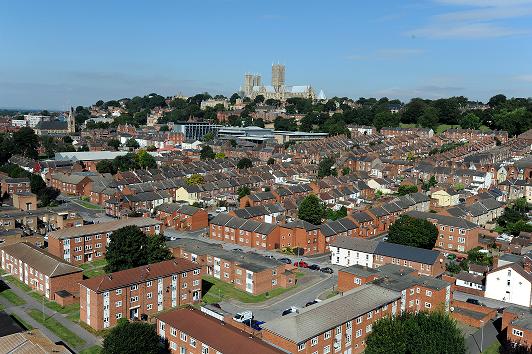
City of Lincoln Council has declared that the financial package given by government to local authorities to help them deal with the impact of coronavirus could be catastrophic for the city.
Following the government’s allocation of funding, a little more than £1 million has been awarded to the city council to help maintain services and cover loss of income as a result of the UK’s coronavirus outbreak.
However, Covid-19 has taken its toll on the financial resilience of the City of Lincoln Council as income streams reduce, debt recovery is deferred and there is a growing necessity to incur costs to ensure services are being provided throughout this difficult period.
As a result of this, the city council estimates between £4m - £5m is needed from government in order for the authority to fully recover following the pandemic.
The most significant pressure facing the council during 20/21 will be the loss of income across a range of discretionary services as well as through its investments and rental income.
Initial estimates (based on lockdown until June and then an ongoing impact on the economy) are that losses are expected in car parking, housing rents, planning and building control, leisure and recreation, and treasury investments.
The council is also incurring additional costs from supporting homelessness, coping with rising demands, the cost of setting up some of its response cells e.g. befriending services, business support and from requests of financial support from many of the charity, voluntary and community groups it already supports.
The financial issues for the council go beyond the current financial year include ongoing pressures such as:
- An increase in homelessness cases and demands in both the short and long term
- An increased demands on its benefits teams due to increased Universal Credit claims and impact of changes to the Local Council Tax Support Scheme in the short term
- An increase in demand for those eligible for the Local Council Tax support scheme in both the short and long term (the hardship fund does not consider the longer term cost implication due to increased claimant numbers)
In addition the council’s other main sources of income, council tax and business rates, are also expected to significantly drop due to the economic downturn that is almost certain to follow the end of lockdown.
Jaclyn Gibson, Chief Finance Officer at City of Lincoln Council said: “Government has been responsive and brought a series of financial packages of support for businesses, the wider community and local government as a whole. However, the allocation of resources to district councils to compensate them on a fair and proportionate basis for the directly related financial losses has not been provided.”
Cllr Ric Metcalfe, Leader of City of Lincoln Council added: “To be allocated little more than £1 million at this difficult time is truly devastating for the city.
“If more funding does not become available, we will be forced to look closely at the services we provide and it is inevitable that some of these will have to stop in order for us to balance the books.
“Our council has done a fantastic job in helping the community during this difficult time. We have used our resources with the promise from government that funds would be replenished, however, following our allocation announcement, this is not happening.
“We will continue to work with other councils across the country, and the LGA, to make the case for recognition of the full costs of coronavirus.”
Angela Andrews, Chief Executive of City of Lincoln Council said: “It is extremely disappointing to hear that our hard work and commitment to this magnificent city and its community are not being funded as we had hoped and expected.
“The £1.6bn funding that government announced recently has been allocated to councils using their population figures.
"This makes no sense as each council is individual and draws income in different ways.
"Government needs to reconsider this way of allocating because, if they don’t, it will have a truly catastrophic impact on the city and the city council.
“The money we have received will go some way towards reimbursing us for our outlay, but to ensure our city remains a great place to live, work, visit and invest in, more funds are needed to help us recover quickly and effectively.”

